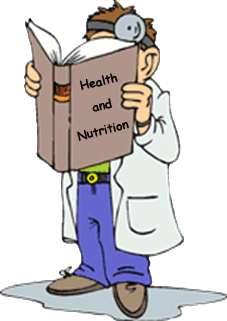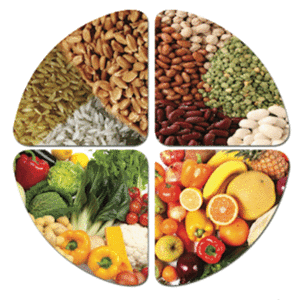 My husband and I followed the Standard American Diet most of our lives. We had a particular fondness for the South Beach Diet which eliminated processed foods, supplied tasty recipes, and helped us manage our waistlines. But we opted to move to a predominantly whole food plant based diet a couple of years ago, thanks in large part to the work of Dr. Neal Barnard, Dr. Jeffrey Bland, Dr. T. Colin Campbell, Dr. Caldwell Essylstein, Dr. Michael Greger, and Dr. Dean Ornish.
My husband and I followed the Standard American Diet most of our lives. We had a particular fondness for the South Beach Diet which eliminated processed foods, supplied tasty recipes, and helped us manage our waistlines. But we opted to move to a predominantly whole food plant based diet a couple of years ago, thanks in large part to the work of Dr. Neal Barnard, Dr. Jeffrey Bland, Dr. T. Colin Campbell, Dr. Caldwell Essylstein, Dr. Michael Greger, and Dr. Dean Ornish.
Here’s what they taught me about the negative effects of eating animal-based foods and their byproducts:
Saturated fats in animal based proteins are associated with elevated levels of serum cholesterol, a risk factor for heart disease (the nation’s number one killer). Moreover, a single meal containing fat and animal products can thwart the heart’s ability to produce nitric oxide. Nitric oxide relaxes the blood vessels, prevents white blood cells and platelets from becoming sticky, and keeps the smooth muscle cells from accumulating plaque. By contrast, nutrients from plant based foods are associated with decreased serum cholesterol. (Esselstyn)
Autopsies performed during World War II revealed that 80% of young American soldiers had arterial plaque, a condition not shared by their Japanese counterparts. However, with their shift to the Standard American Diet, the Japanese have dramatically increased their incidence of arterial plaque and heart disease. This problem begins early. In the United States, 70% of children have fatty deposits in their arteries by age 12. (Esselstyn)
Diets high in animal protein (>10% of caloric intake) are associated with increased risk of developing cancerous tumors. In one study, animal test subjects were exposed to a high level of carcinogens while fed a low protein diet (5% of calories). Their counterparts were exposed to a low level of carcinogens while fed a high protein diet (20% of calories). The high-protein subjects developed more tumors! Furthermore, tumor growth could be turned on and off by varying the amount of animal-based protein in the diet. (Campbell)
Animal based protein (including dairy products) increase the acid load in the bloodstream. Our bodies leech calcium from our bones to neutralize the acid. The countries that use the most cow’s milk and related products have the worst bone health. By contrast, vegetarians excrete less calcium in the urine, absorb more calcium from their diets, and have lower rates of osteoporosis. (Campbell)
When milk floods the body with calcium, we experience a substantial drop in activated Vitamin D. Persistently low levels of activated Vitamin D creates an inviting environment for certain cancers, autoimmune conditions, osteoporosis, and other disease. (Barnard, Campbell)
Vegetarians often use cheese as a source of dietary protein. Beyond its deleterious effect on acid load and calcium in the bloodstream, cheese gets 70% of its calories from milk fat which, pound for pound, delivers more cholesterol than steak. (Barnard)
Here’s what we get by shifting to a predominantly whole food plant based diet:
A whole food plant based diet provides just the right amount of protein (~10% of calories) to sustain our bodies. Plants support a slow and steady synthesis of protein that is least disruptive to the body’s carefully controlled alkaline blood serum. (Campbell)
For those who worry about protein intake, look to our nearest animal relatives, gorillas and chimps. They eat a whole food plant based diet and have strong bones and impressive musculature! (Campbell)
Plants are rich in phytonutrients, chemical compounds that offer plants protection from external threats. When we eat them, we get some of these protective benefits. They target cancer cells with antioxidant, anti-inflammatory, and immune enhancing activities. They also appear to inhibit bone loss. Organic foods have the most phytonutrients as they don’t get help fending off threats from pesticides or herbicides. (Bland, Greger)
Fruits, vegetables, and whole grains are loaded with soluble and insoluble fiber. It gives us a sense of fullness so that we are less likely to overeat. It also supports the digestive process, promotes nutrient absorption, feeds healthy bacteria in the gut, and keeps refuse moving through the colon. (Greger)
Antioxidants are plentiful in whole plant based foods and provide a shield against free radicals. Free radicals are unstable molecules that cause cellular damage and accelerate disease processes and aging. (Campbell, Greger)
People who pursue low fat, low protein diets tend to burn calories at a faster rate. As such, they have less difficulty controlling their weight. (Campbell)
Truth be told: We eat meat on occasion when invited out for dinner, experimenting with an interesting recipe, or tantalized by barbecued ribs at the local grocer. But we really do try to keep these dietary excursions to a minimum.
